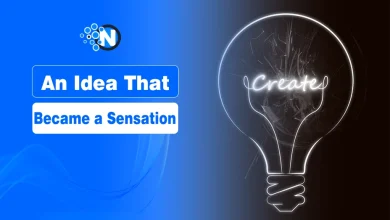Lifelong Learning: How Professionals Stay Ahead Through Executive Education

Staying ahead of others is necessary if you want to beat your competition. For that purpose, the major priority for most working professionals should be executive education. I’ve seen how lifelong learning keeps professionals on top.
Executive education is like a turbo boost for your career, blending new skills with practical insights from real-world experiences.
In this blog post, I will examine the importance of lifelong learning for leaders and its impact on career growth and development.
The Power of Lifelong Learning
Lifelong learning is about continually growing your skills, regardless of your age or stage. It keeps you relevant, especially with tech changing fast.
As mentioned in Harvard Business Review, it’s a mindset that fuels adaptability. If I share my personal experience, then for me, it’s like keeping my career toolbox well-stocked.
I have seen professionals who stop learning fall behind, while those who continue to learn thrive. Keep in mind that it’s not just courses, it’s a way to stay curious. I have always felt more confident tackling new challenges after acquiring new knowledge. This habit is key to staying ahead.
The benefits are real. It enhances problem-solving, which is a massive requirement in today’s jobs. Whether it’s mastering AI or leadership, this approach keeps professionals competitive. Let’s explore how executive education fits in for executive education matters for professionals:

Bridging Skill Gaps
The workplace evolves, and outdated skills are removed from the field. Executive education fills those gaps with targeted programs. This will offer courses on digital transformation or strategy. I have also taken one on data analytics, and it opened new doors.
You may have also noticed how it’s practical, not just theory. I have applied negotiation tactics from a workshop, sealing a deal faster. This relevance makes it worthwhile for busy professionals.
Networking Opportunities
Connecting with peers is a bonus that you cannot even imagine. I have met industry leaders in executive sessions, which have sparked collaborations. These relationships lead to job offers or partnerships.
There are also virtual roundtables that you can attend, and the insights will be invaluable. I have observed how these networks grow my influence. This community aspect is a hidden spark of lifelong learning.
Staying Competitive in a Dynamic Market
Markets shift rapidly, and this is evident in how competitors outpace those who employ outdated strategies. Executive education keeps me sharp with updates on trends like sustainability, and this is because I have learned to rotate my business strategy based on these insights.
This is always helpful because it signals ambition to employers. I have also landed promotions after showcasing new certifications, and let me tell you that this is essential in the modern job landscape.
How Executive Education Supports Lifelong Learning
Executive education supports lifelong learning in various ways, and one of the most beneficial is that the programs are tailored to your specific needs. I have personally selected modules on leadership that align with my goals. This flexibility fits a working pro’s schedule.
I have combined online and in-person classes to balance work and study. And I have seen how this customization keeps learning engaging. It’s like a personal roadmap for career growth.
Access to Cutting-Edge Research
Top schools share the latest findings. You can opt for various AI tools in business straight from researchers. This access gives an edge over peers.
I have personally utilized case studies to address real-world issues, and I have also observed how this research-driven approach fosters innovation. It’s a brilliant way to stay current.
Practical Application Through Projects
One of the most important factors is the Hands-on projects that make learning stick. I have also worked on a strategy overhaul, applying it to my company. This practice turns theory into results.
I have always presented my findings to peers, which helps me receive helpful feedback, and that, in turn, builds confidence and skills. It’s real-world training that pays off.
Popular Executive Education Programs in 2025
Here are some of the most popular and effective executive education programs that you can enroll in 2025:
Short-Term Certificates
Quick courses fit busy schedules. I completed a digital marketing course on the most reliable platform, Coursera, in six weeks. This speed delivers fast value.
I have also noticed some options from edX covering finance or tech. You can also opt for these to upskill without long breaks. They’re perfect for quick boosts.
Executive MBA Options
Part-time MBAs offer deep dives. There are various options that help in blending work and study. This depth builds leadership skills.
I have also experienced the flexibility of online modules. You can gain strategic insights that shape the most essential decisions. I can say that this is a great step for career leaps.
Online and Hybrid Learning
You may also know that virtual learning is booming. I have joined live webinars from home. This access to all of the breaks location barriers and lets you work as a professional and also continue your education.
I have incorporated in-person workshops to achieve a balance, and this suits my lifestyle. This variety keeps learning alive and attractive.
The Future of Executive Education for Professionals
Executive education will evolve with tech. I have seen AI tutors personalizing lessons, and this advancement will save time.
I have also anticipated some VR simulations for practice, and they will ultimately enhance skills. In this future domain, learning will become immersive.
It is now clear that, by 2030, it will likely reshape careers in the near future. I have also read about micro-credentials, which are said to boost employability. This trend will keep pros ahead.
Final Thoughts
Executive education is essential for lifelong learning and professional growth. It bridges skill gaps, offers practical applications, and fosters valuable networking opportunities.
You can stay competitive by staying ahead in a dynamic job market, allowing executives to adapt to changing trends and enhance their career prospects. Popular programs, such as short-term certificates and Executive MBA options, provide flexible learning tailored to busy professionals.
According to mt experience, embracing lifelong education not only boosts confidence. It also equips individuals with the tools necessary for success in their careers.




